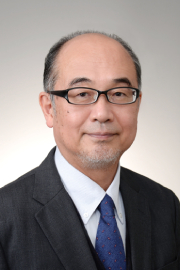From climate change, demographic transitions, natural disasters, pandemics and debt crises to regional conflicts, the world now faces compounded, multi-layered crises. Russia’s aggression against Ukraine has disrupted the post-Cold War world order and caused global energy and food crises. While the so-called Global South emerges and the world increasingly inclines toward multipolarity, inequalities within and between countries are growing, and populist sentiments are gaining force across the world. Despite persistent efforts to realize the Sustainable Development Goals (SDGs), several billion people around the world remain exposed to acute poverty and violence and are tormented by uncertainty about the future.
From times like this, human security emerges as a concept that aims to achieve a society where each and every human being can live in dignity and no one is left behind. Guided by this idea, development agencies must push forward practice that creates a virtuous cycle of peace and development on top of existing development cooperation efforts. Madam Ogata Sadako, who raised the torch of human security throughout her life and pursued noble ideals for humankind, advocated that we should constantly revisit the challenges we encounter in the field. Madam Ogata urged us to partake of the joys and sorrows of the most destitute, such as refugees, and make sure that our assistance would reach them, while fully respecting their agency.

As members of a research institute that keeps the wishes of Madam Ogata alive, aims for sustainable peace and development, and pursues human security, we endeavor to create practical knowledge grounded on our experience in the field. While maintaining world-class academic standards in development studies, we will organize empirical research that contributes to international cooperation practice and try to disseminate research outcomes that make an impact on policymaking. Through lively research activities, we promote gender mainstreaming and inclusive development, paying full attention to those vulnerable to threats and risks.
Let us reflect on what kind of research is required of our institute. Research that “contributes to the practice” may have different dimensions. First, I believe that research to assess the validity of conventional methods that evolved from the long-standing experience of development practitioners is of great importance. We should confirm the effectiveness of the routine methods we have assumed to be effective, so that we can deliberately use and promote them as part of the advantages of Japan’s development cooperation. Second, in development cooperation practice, we often feel at a loss as to the choice of appropriate options when several different means are available to realize a single objective. Lessons learned in various cases need to be compiled to ensure the relative effectiveness of different options. This is the kind of research that will contribute to wiser policy choices.
Third, precisely because we live in times of unprecedented crises, we must be able to produce research that proposes new paradigms that go beyond conventional beliefs and modalities. Such ambitious research will challenge existing norms prevalent in policymaking, development cooperation practice, and the world of academic research. Provocative, path-breaking research that would start spirited debates will be beneficial, as long as it is based on facts. Upon moving our research activities forward in such directions, we recognize the value of data, collect information and utilize digital technologies.
For development cooperation in an era of complex, compounded crises, we need to get a wide range of actors involved, including the private sector, civil society and local governments. At JICA Ogata Research Institute, in partnership with universities, the JICA Development Studies Program is growing very rapidly. In order to aim for the creation of comprehensive knowledge for peace and development, we would also like to enhance collaborations with researchers in natural sciences and humanities in addition to social sciences. Furthermore, as a development agency, JICA has been conducting activities in countries of the Global South for a long time. Taking advantage of this experience, while harmonizing with the principles of OECD-DAC and fully considering global trends in development assistance, we will further co-create knowledge with researchers and research institutes in developing countries. As we expand our collaborative efforts in our six research clusters, we will draw universal lessons from Japan’s development experience and disseminate our research results widely, both domestically and internationally, through seminars and public relations activities.
Utilizing the great intellectual assets built under the directorship of my predecessors, we will continue to accumulate empirical research outcomes steadily. Moreover, based on the principles of Japan’s 2023 Development Cooperation Charter, we will step into bold and exploratory research activities that are ahead of the curve. By doing so, we pledge to contribute to building a better world where everyone can trust each other and live in security.
Thank you for your continued support to the JICA Ogata Research Institute.
April 2023
Mine Yoichi
Executive Director
JICA Ogata Sadako Research Institute for Peace and Development











scroll